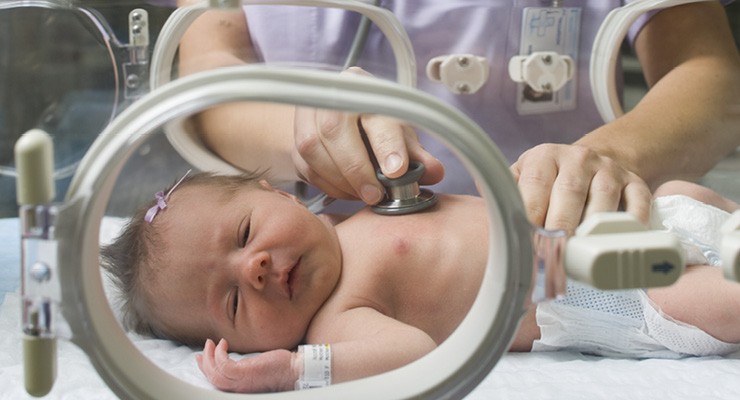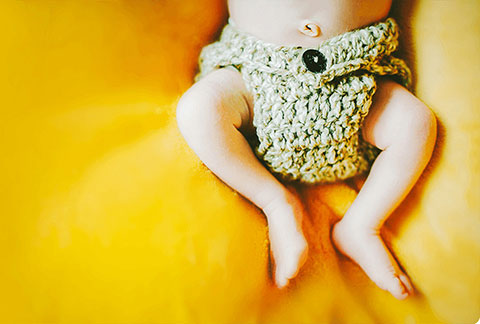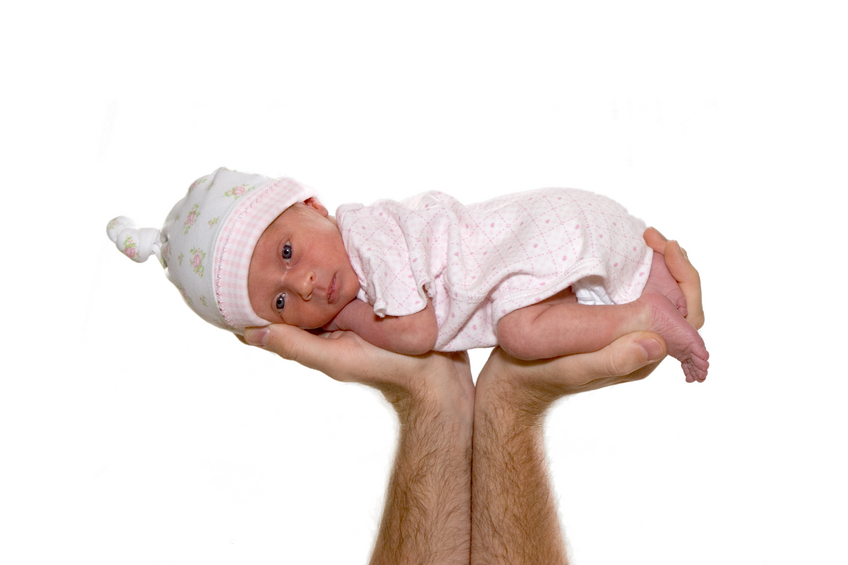-
 What is the NICU? Babies who are born prematurely, have undergone a difficult birth, or have...
What is the NICU? Babies who are born prematurely, have undergone a difficult birth, or have... -
 What is Corrected or Adjusted Age? For babies born before the expected due date, there is...
What is Corrected or Adjusted Age? For babies born before the expected due date, there is... -
 WHAT CAN I EXPECT FOR MY PREEMIE’S GROWTH AND DEVELOPMENT? Parents of infants born prematurely often...
WHAT CAN I EXPECT FOR MY PREEMIE’S GROWTH AND DEVELOPMENT? Parents of infants born prematurely often... -
 TAKING YOUR PREEMIE HOME Many parents count the days until they can bring their preemies home....
TAKING YOUR PREEMIE HOME Many parents count the days until they can bring their preemies home.... -
 WHAT IS KANGAROO CARE? Kangaroo care (KC) is a method of skin-to-skin contact that provides a...
WHAT IS KANGAROO CARE? Kangaroo care (KC) is a method of skin-to-skin contact that provides a... -
 What is Premature Birth? Premature birth occurs when a baby is born more than three weeks...
What is Premature Birth? Premature birth occurs when a baby is born more than three weeks...

¿QUÉ ES EL CUIDADO CANGURO?
El método canguro (KC, por sus siglas en inglés) es un método de contacto piel con piel que brinda una experiencia de apoyo y cuidado para su bebé prematuro. La práctica se llama "cuidado canguro" ya que simula cómo los marsupiales sostienen a sus crías en bolsas protectoras mientras las crías continúan desarrollándose y creciendo.
Para realizar el método canguro, el bebé estará desnudo (excepto por un pañal) y se recostará contra el pecho desnudo de los padres. Luego, el padre puede cubrir al bebé con una manta de recepción (o la ropa de los padres) para crear la "bolsa" y sostener al bebé.
ORIGEN
¿Cuál es el origen del método canguro?
El método canguro se originó a fines de la década de 1970 en Bogotá, Colombia. Los cuidadores alentaron a las madres a sostener a sus bebés para mitigar el hacinamiento en las salas de los hospitales y reducir las tasas de mortalidad infantil. La investigación encontró que los bebés prematuros sostenidos contra el pecho de su madre sobrevivieron y prosperaron. Cincuenta años después, el método canguro es ahora una práctica estándar entre las UCIN de todo el mundo.
BENEFICIOS
¿Cuáles son los beneficios del método canguro?
Los beneficios del método canguro van desde la relajación y el vínculo hasta el aumento de la producción de leche. Desde un punto de vista antropológico, las madres instintivamente sostienen a sus hijos contra el pecho con frecuencia durante los primeros meses. El método canguro inicia este proceso natural incluso si el bebé primero necesita pasar algún tiempo en la UCIN.
La investigación ha encontrado que algunas de las principales ventajas del método canguro incluyen las siguientes:
- Estabilidad psicológica (mayor vínculo por contacto piel con piel (SSC) junto con una disminución del estrés)
- Estabilidad fisiológica (promueve la estabilización de la temperatura, la presión arterial, la frecuencia cardíaca y la frecuencia respiratoria)
- Aumento del sueño profundo (la mayoría de los bebés se acurrucan y se quedan dormidos en cuestión de minutos)
- Equilibrio del sueño y estado de alerta tranquilo (la estabilidad del latido del corazón de los padres calma al bebé)
- Calor corporal de padres a hijos
- Disminución del llanto
- Mayor ganancia de peso
- Aumento de la lactancia materna
- Mejora del desarrollo cerebral y cognitivo.
- Posible disminución de la duración de la estancia en la UCIN
Los padres también se benefician del método canguro. Algunos de los principales beneficios incluyen:
- Fomentar el proceso de vinculación
- Mayor conciencia y capacidad de respuesta al bebé.
- Mayor confianza en el cuidado futuro del bebé en el hogar
- Aumento de la producción de leche materna
- Disminución de la probabilidad de depresión posparto
PARA PAPÁS
¿Pueden los papás dar el método canguro?
¡Ciertamente! Comuníquese con la NICU con anticipación para que no se sienta abrumado con el proceso. La mayoría de las NICU o guarderías tienen sillas mecedoras que el personal puede colocar directamente en el área de su hijo. Puede usar una camisa que se abra al frente o usar una bata de hospital si se le proporciona. Acurruque al bebé contra su pecho o coloque la cabeza del bebé sobre su pecho. Si tiene alguna inquietud, el personal también puede ayudarlo a ubicar a su hijo.


